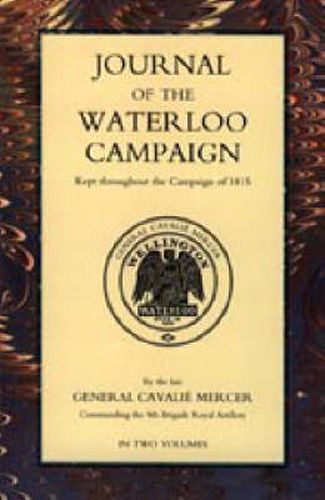Readings Newsletter
Become a Readings Member to make your shopping experience even easier.
Sign in or sign up for free!
You’re not far away from qualifying for FREE standard shipping within Australia
You’ve qualified for FREE standard shipping within Australia
The cart is loading…






The author of this book was commander of ‘G’ Troop, Royal Horse Artillery, in Wellington’s army, who jotted down notes on the events of the day each evening. It is an account of what he saw and felt from leaving Colchester for Belgium on 8 April 1815 to his final return to England at the end of January 1816. It is a remarkable and compelling account, especially of the three days which ended the career of Napoleon. Mercer’s troop was at Quatre Bras, where he got off a few rounds at Napoleon himself, and at Waterloo. There are graphic descriptions of the battles and of his tour over the battlefield the day after, with its appalling scenes of carnage and the sight of the locals looting the dead, and the not-quite dead. It is an outstanding example of the literature of the Napoleonic wars, and it has a rarity as the memoir of an artillery officer, and a troop commander at that.
$9.00 standard shipping within Australia
FREE standard shipping within Australia for orders over $100.00
Express & International shipping calculated at checkout
The author of this book was commander of ‘G’ Troop, Royal Horse Artillery, in Wellington’s army, who jotted down notes on the events of the day each evening. It is an account of what he saw and felt from leaving Colchester for Belgium on 8 April 1815 to his final return to England at the end of January 1816. It is a remarkable and compelling account, especially of the three days which ended the career of Napoleon. Mercer’s troop was at Quatre Bras, where he got off a few rounds at Napoleon himself, and at Waterloo. There are graphic descriptions of the battles and of his tour over the battlefield the day after, with its appalling scenes of carnage and the sight of the locals looting the dead, and the not-quite dead. It is an outstanding example of the literature of the Napoleonic wars, and it has a rarity as the memoir of an artillery officer, and a troop commander at that.